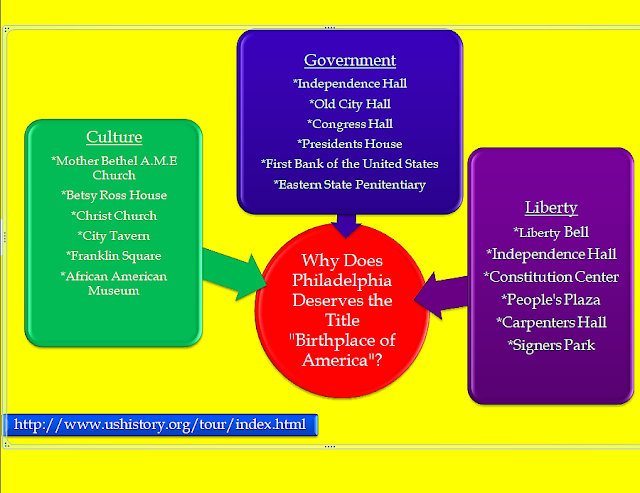Content Map for Virtual Field Trip to Historic Philadephia, Pennsylvania

I implemented this content map with my 8th grade Civics students as we took a virtual field trip through historic Philadelphia. The guiding question for my students to answer was "What makes Philadelphia the Birthplace of America?" Students were asked to sort the places they "toured" into one or two of the three categories, Government, Liberty and Culture. This is the tour we took: http://www.ushistory.org/tour/index.html This is our content map the students filled in: